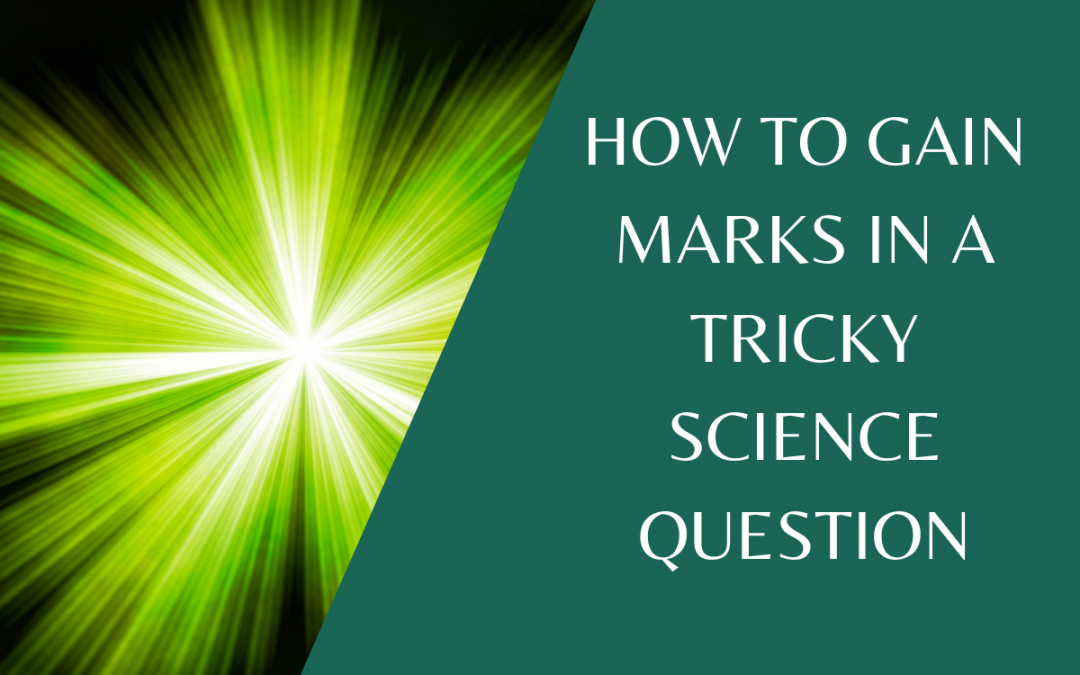Need help with how to answer that tricky KS3 Science question and gain maximum marks? Science tests can be scary. Do you write lots but never get all the marks? Did you know that it’s harder to get all the marks on longer questions? Read on to learn how to aim for all the marks in the Science test question.
🔎 Identify the topic the questions are asking you about
You need to be clear what you are being asked about. Is it photosynthesis, or respiration, or energy resources, or transfers of energy? This will help you work out the keywords you need to include to get maximum marks in the test.
🗯 What have you been asked to do?
Have you been asked to compare two sets of data or to explain a process? Sometimes much of what what you need is in the actual question. If the question includes a diagram you need to use information from that diagram in your answer. Using all the clues and information in the question will help you answer it really well.
📝 Check how many marks the question is worth.
At the end of the question there is always a number in brackets. This tells you how many marks this part of the question is worth. That number relates to the number of scientific points you need to make – 5 (correct) scientific points will score 5 marks. You can then use this as a guide when writing the answer – always check you have made enough scientific points to answer the question and gain maximum marks.
📊 Do you need to include data?
If your question refers to a graph or table, this often means you need to use the data to explain a pattern or discuss whether it supports the experiment they are testing. You can talk about patterns in the data and whether they increase, decrease or remain the same. Sometimes this feels as though you are stating the obvious, but this is ok.
🔢 How many points have you made that answer the question? This does not include repeating information they have already told you!
Read through what you have written so far and look back at the question. Does what you have written, answer the question or just repeat it? Quite often students start by repeating the question and fill the space up with words that don’t earn any marks at all. If you have repeated the start of the question in your answer, remove it.
📖 Re-read your answer and check it makes sense.
This is such an important part of the answer writing process as this is where you will see any mistakes you have made, in science, grammar or just plain English. You will also be able to check if the answers make sense and that you have actually answered the question being asked. Whilst reading through at this point it is important to check your spelling, particularly science words. Some students muddle two words together so the person marking the test can’t easily tell which word it was meant to be which means you might not get any marks at all for that point..
👩🏻🔬 Would your answer make sense to someone who doesn’t know much about it?
We often forget this, but one of the best ways to check your answer is to assume someone who doesn’t know what you’re talking about is reading it. Does your answer make sense to them? If it does then you are likely to have gained many marks!
💡 Hopefully this gives you an idea of how to get that answer perfect for your next science test!
KEEP UP TO DATE - DON'T MISS OUT!
Our regular newsletters are filled with helpful and interesting information to help you with your Science at school

